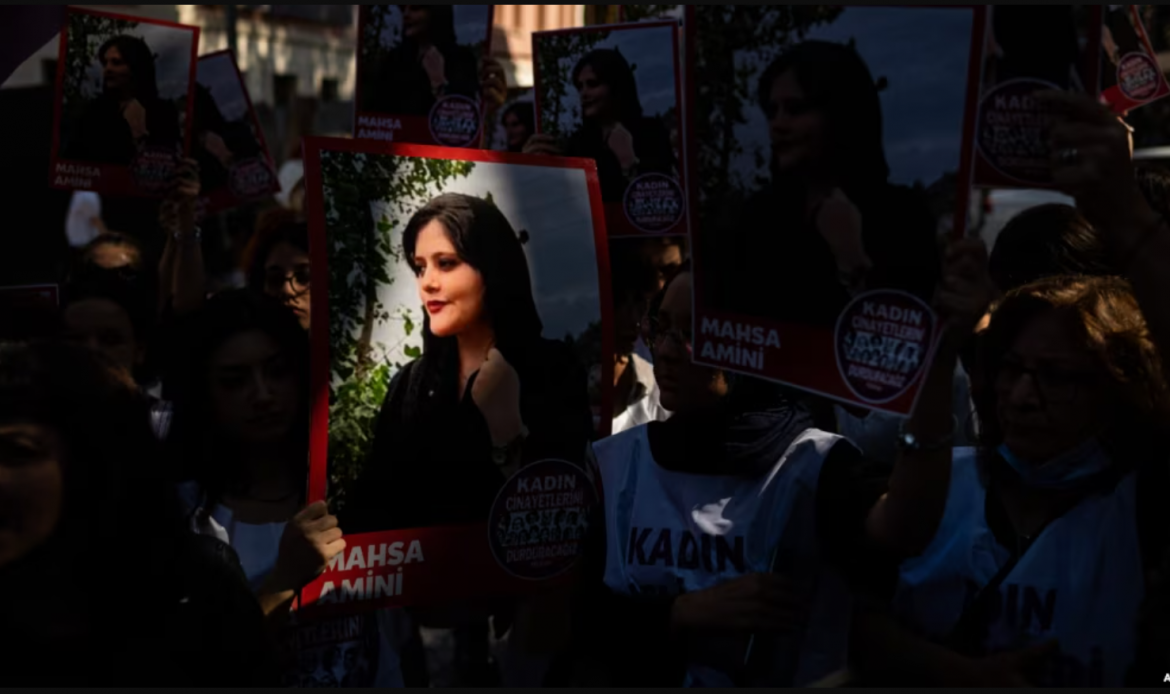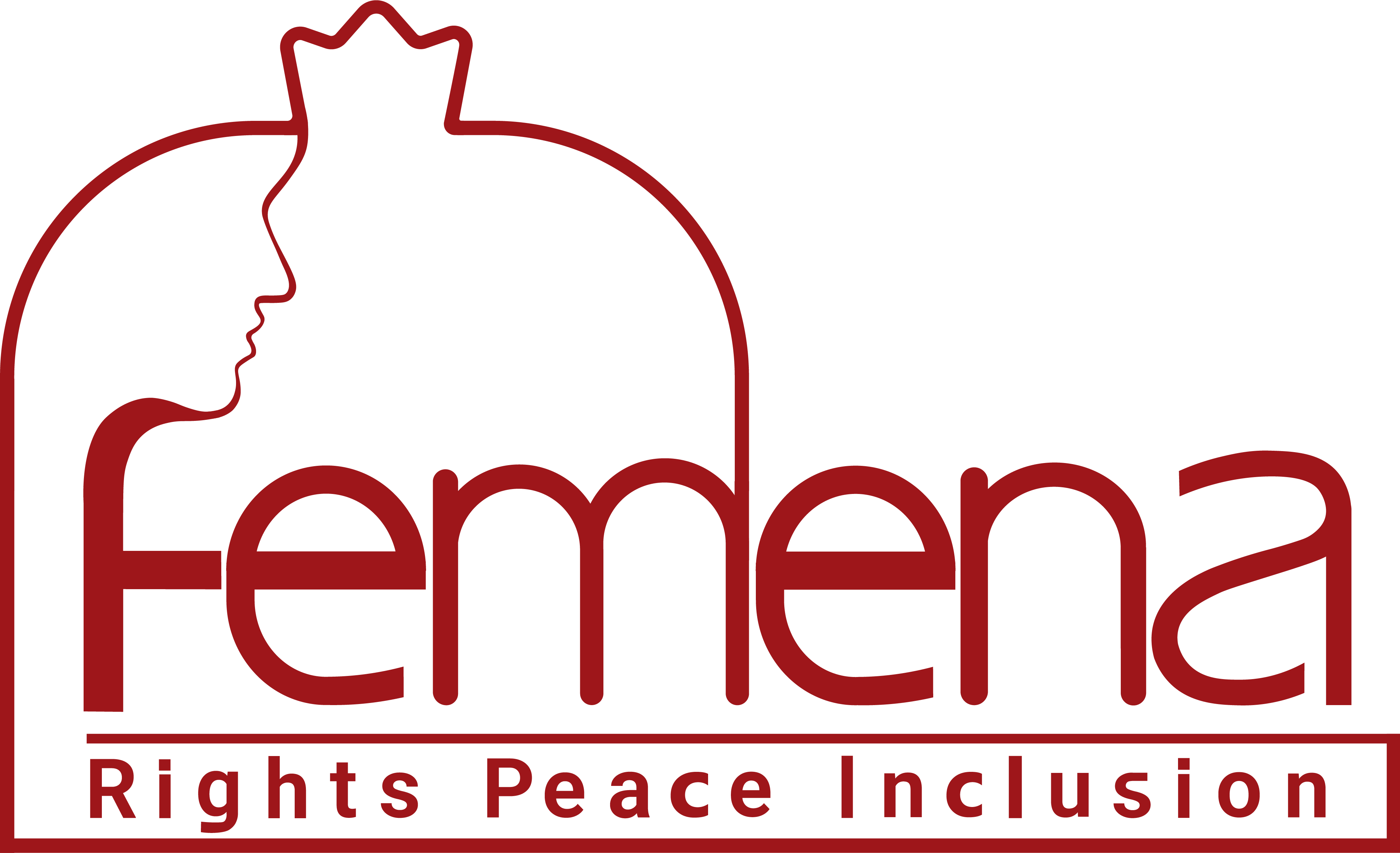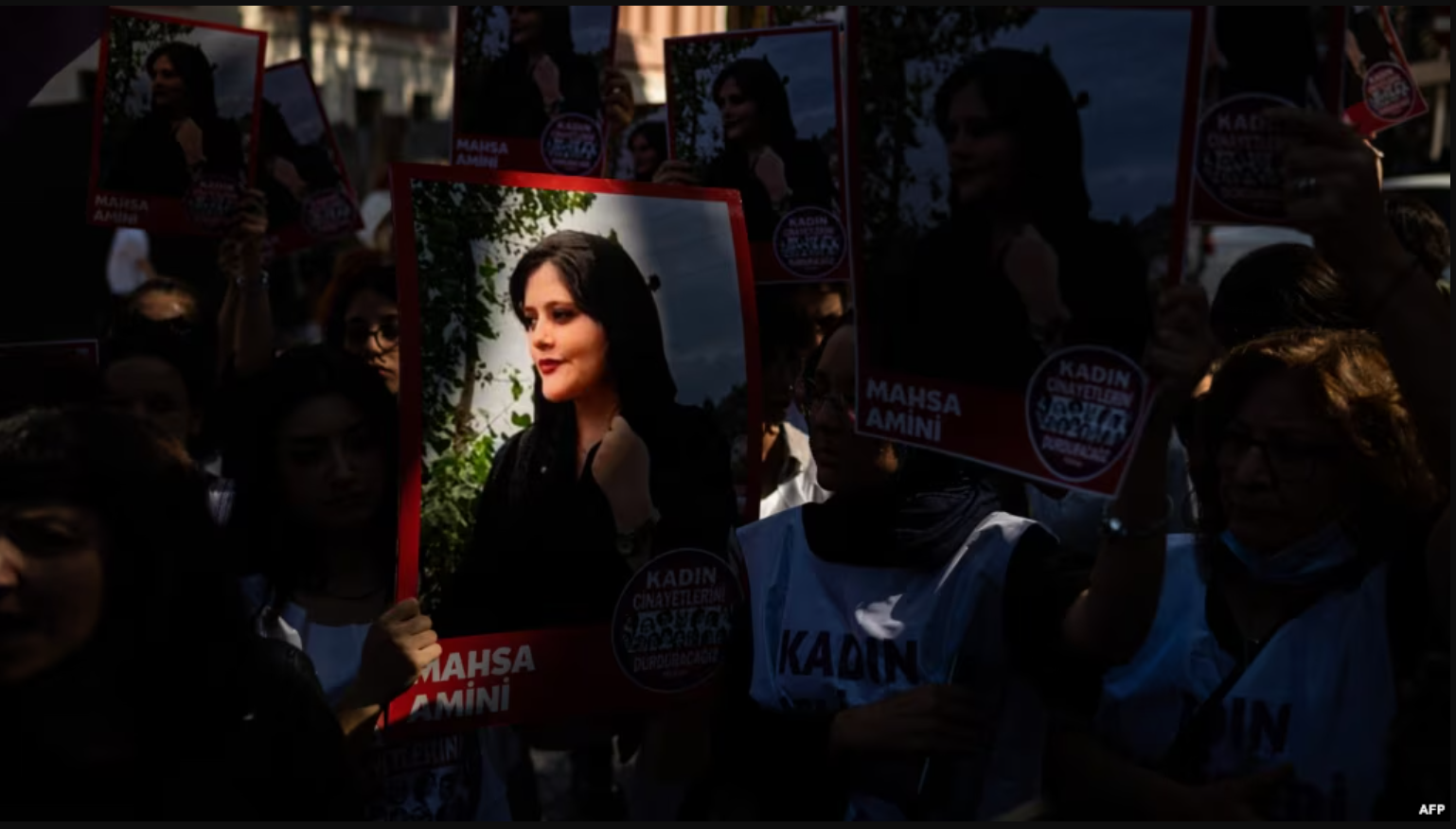
TO: Member states of the United Nations Human Rights Council
Your Excellency,
We, the undersigned Iranian and international human rights organisations, call on your country to support the renewal of the mandate of the United Nations (UN) Special Rapporteur on the situation of human rights in the Islamic Republic of Iran and the extension of the mandate of the Independent International Fact-Finding Mission on the Islamic Republic of Iran (FFMI) at the 55th session of the Human Rights Council. The continuation of these two distinct and complementary mandates is essential for the Council to fulfil its mandate of promotion and protection of human rights in Iran.
We also urge your government to use this opportunity to publicly voice alarm at grave and persistent violations of human rights committed in the country, some of which the FFMI held to “amount to crimes against humanity… committed as part of a widespread and systematic attack directed against a civilian population, namely women, girls and others expressing support for human rights”, and to call for the end of these violations and for justice, truth and reparation.
***
The renewal of the mandate of the Special Rapporteur is essential, given the severity of the human rights crisis in Iran, characterized by ongoing crimes under international law and serious human rights violations affecting millions of people in Iran and the wide variety of rights curtailed. The monitoring, regular public reporting and capacity to engage with authorities and other stakeholders by the Special Rapporteur is a lifeline in this context.
At this session, the Council is again presented with a large body of evidence demonstrating the ongoing crisis of systemic impunity whereby crimes under international law and other human rights violations go unpunished in the country. This includes widespread violations of the right to life, not to be subjected to torture and other ill-treatment, to security and liberty of the person, to a fair trial, to an effective remedy, to freedom of religion or belief, of expression, of peaceful assembly and of association, and the rights to privacy, health, education, livelihood and work, as detailed in an Annex to this letter.
Women and girls continue to be treated as second-class citizens, amid an intensified crackdown for defying degrading and abusive compulsory veiling laws. Lesbian, Gay, Bi, Trans and Intersex people, as well as ethnic and religious minorities, are also subjected to systemic discrimination. Those targeted include Ahwazi Arabs, Azerbaijani Turks, Baluchis, Kurds and Turkmen; persons belonging to religious or belief minorities, including Baha’is, Christians, Gonabadi Dervishes, Jews, the Yarsan (Ahl e Haq), Sunni Muslims and atheists.
In such a context, the renewal of the mandate of the Special Rapporteur is critical to monitor and document developments, and report to this Council on whether Iranian authorities are upholding their human rights obligations or failing to do so. The country rapporteur is essential to engage with Iranian authorities, and to make potentially life-saving urgent appeals and other communications, which include seeking to halt imminent executions and improve the circumstances of detained individuals and their access to urgent medical care. In a context marked by extremely repressive tactics to deny civic space, this mandate also draws attention to the voices of survivors, victims and their families, human rights defenders and others seeking truth and justice. Over the past decade, the Special Rapporteur’s expert findings and recommendations have proved critical to steer and inform the efforts of UN bodies and of member states to encourage Iran’s authorities to take measures to uphold their human rights obligations and hold them to account.
***
The mandate of the FFMI, established following the death in custody of Jina Mahsa Amini, to address violations committed in the context of the 2022 nationwide protests, with a particular focus on the women and children, also remains essential. Not only do violations related to the 2022 protests continue to reverberate in Iran, but the mandate has a crucial role in addressing the impunity fuelling those and other abuses.
As noted, the litany of crimes under international law related to the 2022 protests continue. Thousands of people, including children, have been subjected to abusive interrogations, arbitrary detention, unjust prosecution, and suspension or expulsion from education or employment for peacefully exercising their human rights. Intelligence and security bodies have continued to target family members of those unlawfully killed during the protests for seeking truth and justice for their loved ones’ killing. At least nine people have been arbitrarily executed in connection to protests following grossly unfair trials. In January 2024, UN experts strongly condemned the execution of Mohammad Ghobadlou, and noted that at least four individuals remain, reportedly, at imminent risk of execution in connection with the nationwide protests, while at least 15 others face the death penalty. Meanwhile, impunity continues and there have been no impartial, independent, and effective domestic investigations into their use of unlawful and lethal force, torture and other ill treatment, including rape and other forms of sexual violence, and other serious abuses. The long-standing patterns of human rights violations detailed in the Annex are facilitated by what the FFMI described as a situation of “pervasive impunity”, where “authorities had failed to investigate allegations of human rights violations, or to prosecute or punish those responsible, and had deliberately and systematically obstructed any efforts by the victims and their families to obtain redress and establish the truth”.
As stressed by this Council in last year’s resolution, “sustained and systematic impunity for gross violations of human rights and an absence of accountability… create an enabling environment for perpetrators, violate victims’ right to an effective remedy and perpetuate cycles of violence”. For past patterns of violations not to repeat in the future, this situation of pervasive impunity for human rights violations and international crimes must be addressed. Only an independent investigative body, with adequate resources, staffing and time, can properly address this fundamental challenge. The FFMI clearly has an important role to play in this regard.
In line with its mandate, the FFMI has put the situation of women and girls at the heart of its investigation. It concluded that the crime against humanity of gender-based persecution has been committed, and that “pervasive and deep-rooted structural and institutionalized discrimination against women and girls, permeating all areas of their public and private lives” in Iran has been both “a trigger and an enabler” of the violations and crimes it has established. An extension of FFMI’s mandate would allow for further and deeper analysis of the gender dimension of human rights violations and crimes documented.
Despite delays in the operationalization process and budgetary challenges outside of its control, the FFMI has made significant progress investigating violations committed in the context of the protests. Gaps however remain, as noted above, and the FFMI needs more time and appropriate resources to process the important amount of evidentiary material gathered. More time will allow the FFMI to also address gaps left in its findings before submitting a final report, and to further promote pathways for justice, truth and reparation for gross violations of human rights and crimes under international law committed by Iranian officials. This will also ensure that the survivors, victims and their families who share their testimonies and participate in the establishment of truth and justice have their voices heard.
***
The two mandates are clearly distinct, and complementary. The FFMI fulfils temporarily a mission of investigation on a specific set of events marked by paroxysmic state violence that the Special Rapporteur mandate is not equipped to fulfil, and is specifically mandated to address impunity and the rights of women and children. The long-term mandate of the Special Rapporteur, meanwhile, is key to ensure that other violations not falling into the mandate of the FFMI are duly addressed and that Iranian authorities maintain some engagement with the Council on the wide array of human rights abuses they perpetuate on the population in Iran with impunity. The Special Rapporteur also plays a vital role working on individual cases, including in relation to the death penalty, the use of which sky-rocketed in 2023.
Victims and survivors of past and ongoing violations need these two mechanisms to be in place and operational. As do their families, human rights defenders, journalists and other media workers, dissidents and others who continue to face reprisals by the Iranian authorities solely for peacefully exercising their human rights.
For all these reasons, we urge your government to support extending at this session both the mandate of the UN Special Rapporteur on the situation of human rights in Iran and the mandate of the UN Fact Finding Mission on Iran, and to press Iran to give these mechanisms unfettered access to the territory. We also call on your government to publicly voice its grave alarm at the human rights crisis in Iran, and to send a resounding message to the Iranian authorities that ongoing violations must stop, impunity for rights violations and international crimes must end and that Iranian officials will be held to account.
Abdorrahman Boroumand Center for Human Rights in Iran (ABC)
The Advocates for Human Rights
Ahwaz Human Rights Organization
All Human Rights for All in Iran
Amnesty International
Arseh Sevom
Article 18
ARTICLE 19
Association for the Human Rights of the Azerbaijani People in Iran (AHRAZ)
Baloch Activists Campaign
Balochistan Human Rights Group
Cairo Institute for Human Rights Studies (CIHRS)
Center for Human Rights in Iran
The Centre for Supporters of Human Rights (CSHR)
Ensemble Contre la Peine de Mort (ECPM)
Femena
Front Line Defenders
Global Centre for the Responsibility to Protect
Harm Reduction International
Hengaw Organization for Human Rights
Human Rights Watch
Impact Iran
International Bar Association’s Human Rights Institute (IBAHRI)
International Commission of Jurists (ICJ)
International Federation for Human Rights (FIDH)
International Service for Human Rights (ISHR)
Iran Human Rights
Iran Human Rights Documentation Center (IHRDC)
Justice for Iran
Kurdistan Human Rights Association – Geneva (KMMK-G)
Kurdistan Human Rights Network (KHRN)
Kurdpa Human Rights Organization
Miaan Group
Minority Rights Group International
OutRight Action International
PEN America
Siamak Pourzand Foundation (SPF)
United for Iran
UNPO – Unrepresented Nations and Peoples Organisation Women’s International League for Peace and Freedom (WILPF) World Coalition Against the Death Penalty
World Organization Against Torture (OMCT)
6Rang – Iranian Lesbian & Transgender Network
***
ANNEX
Violations documented in the past year include serious and widespread violations of the right to life, through what was described by the High Commissioner as a “sharp spike” in executions reaching “frightening” numbers, as over 800 persons were executed in 2023, the highest number since 2015, including seven in public. The Iranian authorities executed several individuals who were children at the time of the alleged offence, including one who was also a child at the time of execution, as well as six protesters arrested in relation to in the “Women, Life, Freedom” nationwide protests. Members of oppressed minorities, in particular Baluchis, were disproportionately impacted by the death penalty, as were Kurds. At least 22 women have been executed, the highest number since 2013.
Throughout the year, death sentences, corporal punishment, such as flogging and amputation, and prison terms were issued and/or carried out following grossly unfair trials within a judicial system that lacks independence and which, according to the Special Rapporteur “acts as a repressive organ instead of an independent body towards which individuals seek recourse”. Those detained are routinely denied access to an independent lawyer and, as highlighted by a group of Special Procedures, lawyers “often work in peril within a legal profession that has been restricted by rules and regulations that contravene international standards relating to the free and independent exercise of the legal profession and the right to fair trial”.
Additionally, in the last year, thousands of people, including children, have faced increased levels of judicial harassment and arbitrary detention for peacefully exercising their human rights. Those impacted include women and girls appearing in public without compulsory headscarves, actors and musicians, writers and academics, journalists, university students, Lesbian, Gay, Bi, Trans and other gender diverse and Intersex (LGBTI) individuals as well as human rights defenders, including labour rights activists, women’s rights activists, child rights defenders, lawyers and families seeking truth and justice for victims of unlawful killings.
As evidenced by the report of the Fact-Finding Mission, women and girls in Iran are subjected to “pervasive and deep-rooted structural and institutionalized discrimination against women and girls, permeating all areas of their public and private lives”. A “Chastity and Hijab” bill, currently nearing adoption in Parliament, would codify and impose further draconian penalties severely violating the rights of woman and girls who are deemed not to abide by compulsory veiling laws, and criminalize non-state actors, including employers and shop-owners, who fail to enforce compulsory veiling. Iranian authorities have intensified their large-scale campaign to enforce compulsory veiling, including through surveillance of women and girls in public spaces, and mass police checks targeting women drivers. Since January 2023, tens of thousands of women have had their cars arbitrarily confiscated as punishment for defying Iran’s veiling laws. Others have been prosecuted and sentenced to flogging or prison terms or faced other penalties such as fines or being forced to attend “morality” classes. This all-out assault against women and girls claiming their human rights to freedom of expression, religion, belief and bodily autonomy is gravely concerning.


